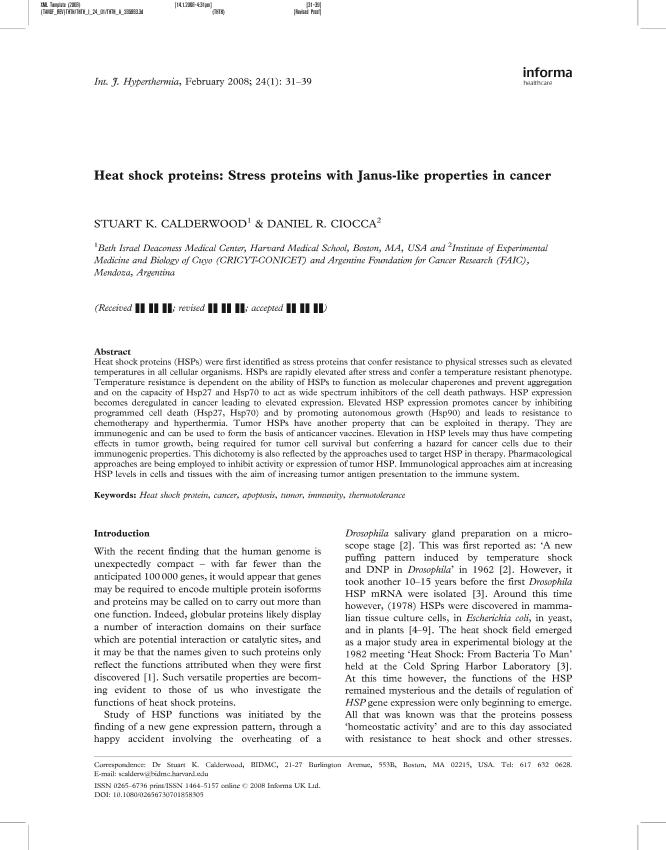Artículo
Heat shock proteins: Stress proteins with Janus-like properties in cancer
Fecha de publicación:
02/2008
Editorial:
Taylor & Francis
Revista:
International Journal Of Hyperthermia
ISSN:
0265-6736
Idioma:
Inglés
Tipo de recurso:
Artículo publicado
Clasificación temática:
Resumen
Heat shock proteins (HSPs) were first identified as stress proteins that confer resistance to physical stresses such as elevated temperatures in all cellular organisms. HSPs are rapidly elevated after stress and confer a temperature resistant phenotype. Temperature resistance is dependent on the ability of HSPs to function as molecular chaperones and prevent aggregation and on the capacity of Hsp27 and Hsp70 to act as wide spectrum inhibitors of the cell death pathways. HSP expression becomes deregulated in cancer leading to elevated expression. Elevated HSP expression promotes cancer by inhibiting programmed cell death (Hsp27, Hsp70) and by promoting autonomous growth (Hsp90) and leads to resistance to chemotherapy and hyperthermia. Tumor HSPs have another property that can be exploited in therapy. They are immunogenic and can be used to form the basis of anticancer vaccines. Elevation in HSP levels may thus have competing effects in tumor growth, being required for tumor cell survival but conferring a hazard for cancer cells due to their immunogenic properties. This dichotomy is also reflected by the approaches used to target HSP in therapy. Pharmacological approaches are being employed to inhibit activity or expression of tumor HSP. Immunological approaches aim at increasing HSP levels in cells and tissues with the aim of increasing tumor antigen presentation to the immune system.
Palabras clave:
Apoptosis
,
Cancer
,
Heat Shock Protein
,
Immunity
,
Thermotolerance
,
Tumor
Archivos asociados
Licencia
Identificadores
Colecciones
Articulos(IMBECU)
Articulos de INST. DE MEDICINA Y BIO. EXP. DE CUYO
Articulos de INST. DE MEDICINA Y BIO. EXP. DE CUYO
Citación
Calderwood, Stuart K.; Ciocca, Daniel Ramon; Heat shock proteins: Stress proteins with Janus-like properties in cancer; Taylor & Francis; International Journal Of Hyperthermia; 24; 1; 2-2008; 31-39
Compartir
Altmétricas




